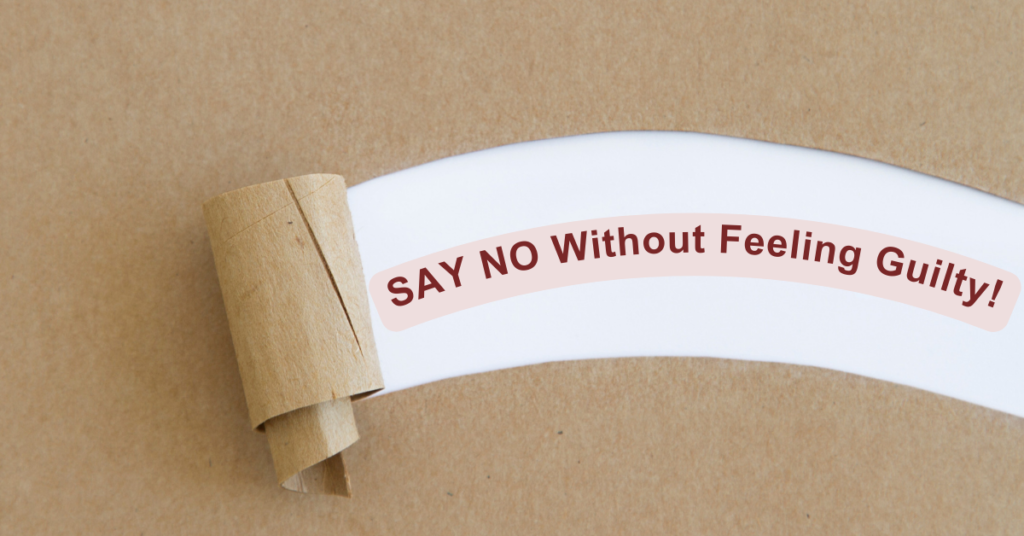
HOW TO SAY NO Without Feeling Guilty!
Saying no is a powerful tool for maintaining personal boundaries and self-respect. It’s amazing how something so simple can be so difficult for many of us. When we say no, we’re taking a stand for our own needs and priorities, refusing to let others dictate how we spend our time and energy.
We’ve all been there—stuck in a situation where we feel obligated to say yes, even when every fiber of our being is screaming no. Maybe it’s a request from a friend or family member, or perhaps it’s a task at work that we just don’t have time for. Whatever the case, it’s hard to resist the pressure to conform, to people-please, and to avoid conflict. But the truth is, saying no is not selfish—it’s essential.
Overcoming Guilt When Saying No
Guilt often plays a significant role in our reluctance to say no. We worry that others will be disappointed or angry, that they’ll think we’re lazy or uncaring.
Sometimes, we fear missing out on an opportunity. Then there’s the deeper fear of rejection—the worry that saying no might push others away.
For some, this fear of rejection stems from past experiences of abandonment or being left out. It’s no wonder that saying yes feels like the safer choice, even if it leads to exhaustion and resentment. However, agreeing out of fear or obligation only leads to burnout in the long run.
How to Say No Without Feeling Guilty
Breaking free from this cycle requires a mindset shift. Here are a few key strategies to help you say no with confidence:
- Use Clear and Direct Language
Instead of beating around the bush or making up excuses, be straightforward. Try saying, “I appreciate the invitation, but I’m going to have to pass on this one.” Simple, respectful, and to the point. - Practice Assertiveness
Being firm yet respectful in your communication helps reinforce boundaries. For example: “I understand you need help with this project, but I’m not able to take it on right now. Maybe we can find someone else who can assist?” This approach is direct without being dismissive. - Recognize the Value of Your Time and Energy
Our time is limited, and our energy is finite. When we acknowledge this, we begin to prioritize our own needs. Saying no to others often means saying yes to ourselves—and that’s an empowering realization.
A Personal Experience on Saying No
A few months ago, I was asked to take on a project that would have required me to work 20 additional hours per week for several months. While it was a great opportunity, I knew it would be unsustainable. Already feeling overwhelmed with my workload, I realized that saying yes would lead to burnout.
Initially, I felt guilty and anxious about declining, but I knew it was the right decision for my well-being. To my surprise, the person who asked was understanding, and we found someone else who was a better fit. That moment was a turning point for me—it reinforced that setting boundaries is not only possible but necessary.
Recap: Key Strategies for Saying No
- Use clear and direct language.
- Practice assertiveness without over-explaining.
- Recognize the value of your time and energy.
- Prioritize your own needs without guilt.
Saying no isn’t about being rude or unhelpful—it’s about respecting yourself and making space for what truly matters in your life. The more we practice it, the easier it becomes to set boundaries with confidence.
Start practicing today and see how empowering it feels!
If you found this article helpful, explore more insights on Innerharmony.co.in for guidance on mindfulness, self-care, and emotional well-being.
For practical tips and expert advice, check out our YouTube channel and subscribe for more content on self-improvement and assertiveness.

